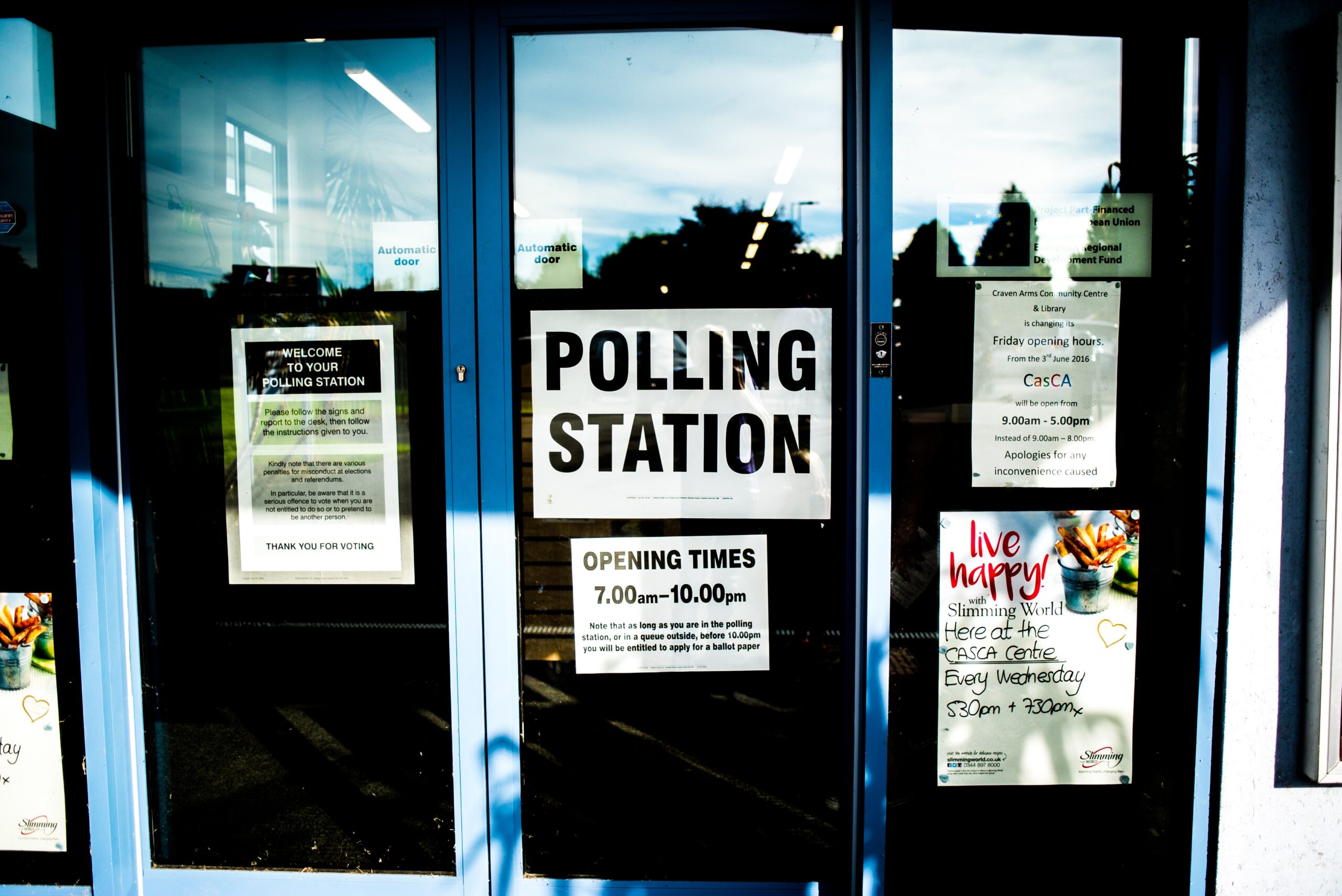13 May 2021
Don’t Worry, Sir Keir
Hartlepool Reappraised
by J.R. Thomas
 Before Jeremy Thorpe became principally famous for his antipathy to large dogs, he was the subject of a Westminster joke, sworn, of course, to be true. Thorpe, riding high as the newish Liberal leader, the voice of middle way politics, was crossing Whitehall, but was trapped between lanes of traffic speeding both ways. Julian Critchley, a waggish Tory, saw him and yelled across “Don’t stay in the middle, Jeremy, it’s certain death!”
Before Jeremy Thorpe became principally famous for his antipathy to large dogs, he was the subject of a Westminster joke, sworn, of course, to be true. Thorpe, riding high as the newish Liberal leader, the voice of middle way politics, was crossing Whitehall, but was trapped between lanes of traffic speeding both ways. Julian Critchley, a waggish Tory, saw him and yelled across “Don’t stay in the middle, Jeremy, it’s certain death!”
Keir Starmer seems also to have become trapped in the middle of the road, his efforts to ride two lanes of Labour traffic speeding in different directions having marooned him in a precarious central reservation. But Starmer’s trouble is that he does not even seem to know which way he wants to go. Having sidelined Corbynism and Mandelsonism, he has failed to find a new product. That is partly because there is no immediate set of policies that will not split his party further apart, it is partly because Sir K is a decent minded technocrat whose beliefs (if any) he has kept to himself so far, but mainly because he has been outmanoeuvred by a player of the great game, one B. Johnson.
Boris has indeed partially demolished the Labour northern red wall. He has done it by achieving Leave, by overcoming Covid-19, and by flinging petrol tanker loads of money at the deserving poor. And everybody else. That has bought him a lot of voter goodwill, at a time when the Labour Party has managed to be on the wrong side of almost every argument, and into the bargain spends most of its energy espousing woke causes that lack much appeal to most of the population. Curtains for the Labour Party, you may assume, any time soon.
But not necessarily so. Let’s have a look at the results of the Hartlepool by-election. If anything marks the end of Labour, the closing of Starmer’s leadership, the reorientation of British politics, and all the other glib phrases currently available in any media output of your choice, it is Hartlepool. Well, only if you don’t do any research. Hartlepool is a safe Labour seat in a grim working class north-eastern town, right? No, wrong. Until 1974, when there was a boundary rearrangement, Hartlepool was a marginal seat, swinging in the C19th between Liberals and Tories, and in the C20th between Tories and Labour. More labour than Tory, but it changed hands on several occasions. The town has middle class suburbs, a proud history of well paid skilled work, most employment being derived in some shape or form from the docks, the third largest in England at the end of the C19th. It was also one of the most strongly pro-Leave constituencies in England. So probably not a great idea for Sir K, or whoever made the decision – nobody is admitting it – to take as its candidate a slightly snooty Remainer doctor who had lost a nearby seat in 2019 because of his strong advocacy for Remain. And replacing the sitting MP who had resigned after accusations of sexual impropriety.
So it was always going to be a bit of challenge for Labour to win the seat. But the voting figures suggest that it has not lost the seat for ever, or even for long. The victorious Conservative, Jill Mortimer, polled 15,500 votes, against Labour’s 8,500. The other 14 candidates need not trouble us here. The turnout – and here comes the hub or crux of why Keir should not worry too much – was 42%. 42% in one of the most publicised by-elections of modern times. It is true that Hartlepoolians are not hugely enthusiastic voters at any time, rarely getting even 60% of themselves to the polling station. What this means is that the Labour vote was down 7,000 compared with 2019 when they won with 15,500, the Conservatives took just under 12,000, and the Brexit Party took 10,600. UKIP was for some time a force in elections there – reflecting the strength of the Leave sentiment and also that general sense of disenchantment of Labour voters with their own party. This time it seems pretty clear that the Conservative won simply because Labour voters stayed at home; not because of some mystical appeal of Johnsonism or because the mortar in the Red Wall has finally crumbled away. Labour currently is not meeting customer aspirations, as any good management consultant would spot, and the Conservatives, sort of, are. That is, a major success in beating the virus, a modest lack of enthusiasm for wokeness, and in the wallet department, a commitment to lowish taxes on the low paid and big expenditure on job creation schemes. The vaccine afterglow will fade fast, and the magic money tree will have to be extended to many forests if the current economic card trick is extended much further. And expensive wall paper, an overenthusiasm for board seats, an unfortunate tendency to be educated at Eton, and too much time in Westminster and the south is not going to sell well for long in the backstreets of northern England.
In the meantime Labour needs to consider who its supporters really are, and what they want. That is not difficult – they are, in small Group A, persons who have left wing inclinations of an intellectual, even theoretical, bent, (this group traditionally lived in Hampstead but now live in Islington) and in large Group B, a significant number of the lower paid, who if asked in a straw poll which they prefer, would tick “Fairness” rather than “Opportunities”. These persons tend to live in the West Midlands and points north. (They also live in Scotland.) But many of these voters, by no means all, but a significant number, have lost their attachment to the Labour Party, and so protest vote at any opportunity. The Brexit vote was not a protest, but represented a deep feeling that a remote bureaucracy was not in the best interests of the north of England, and a desire to be more British – in various ways. The Labour leadership, alas, was just as deeply wedded to Remain, and the wrong footedness of that leadership, except the Corbyn chap, in trying to Remain, has just reinforced the grassroots (and heather-roots) feelings that the Labour Party no longer represents it.
All this is not difficult to correct. Sir K has to start to refocus on the issues that matter to his core Group B voters – which will perhaps mean losing some of the Group A (who can join the Liberals). So, no more talk of Remain or “accepting” the results of the Referendum, instead a vigorous determination to succeed as an independent country, more general talk of patriotism, a slightly cynical attitude to political correctness. Get back to Labour’s roots of better education, health facilities, jobs for real people, repairing potholes. Move Labour headquarters to Barnsley; perhaps Sir K could resign his London parliamentary seat and fight one in the Manchester outskirts, buying a home there. Become loudly pro-north and slightly anti-south. Be green by all means, but sort out the road and parking problems of major Northern cities, and recognise what the green surcharge on energy is doing to energy bills in low waged homes. Take up greyhound racing. Labour of course cannot not pay some homage to socialism, but fundamentally it is for the betterment of the lives of ordinary people. So, off the road and onto the bus.
Tile photo: Elliott Stallion on Unsplash


